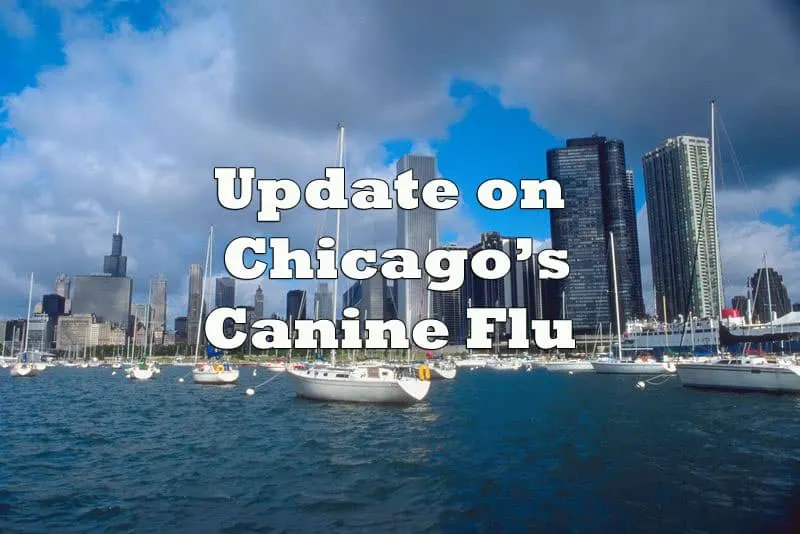
If you’ve been following the news, you’ve no doubt heard about the canine influenza outbreak in Chicago and a few other areas. Along with several deaths, the flu outbreak has resulted in some pet businesses changing their policies during this outbreak to limit contact between dogs.
Today we received an update on the outbreak from BluePearl Veterinary Partners about new information released Sunday that shows the canine flu outbreak affecting more than 1,000 dogs in the Chicago area is believed to be caused by a different strain of the virus than earlier assumed.
Researchers from Cornell University and University of Wisconsin say additional tests revealed the virus is a strain not previously seen in North America, and it’s unknown if the current vaccine provides any protection from it, according to a Cornell University press release.
“This is important information for all pet owners to know,” said Dr. Juliet Gladden, a board-certified specialist in emergency and critical care with BluePearl in Illinois. “While we don’t want to discourage people from vaccinating their pets, it may be more important to heed warnings to avoid places such as dog parks or grooming salons where the virus could be spread.”
According to the Cook County Department of Animal and Rabies Control in Illinois, more than 1,000 dogs have become sick and five have died as a result of canine influenza. About 40 cases of flu have been reported at the three BluePearl Veterinary hospitals in the Chicago area in the past two weeks.
The outbreak had been attributed to the H3N8 virus, but the new tests show that it is the H3N2 virus, which is typically found in southern Chinese and South Korean dog populations, the researchers said. Unlike the other strain, H3N2 may cause illness in cats, although there is no evidence that it can be transmitted to humans.
Both strains cause high fever, loss of appetite, coughing, nasal discharge and lethargy. However, symptoms may be more severe in cases caused by the H3N2 virus, Cornell officials said.
“If you notice any of these symptoms, please call your primary care veterinarian or an emergency care hospital before taking any action,” said Gladden. “They may have suggestions for managing your case at home, which could help prevent the disease from spreading further.”
- Review: Jimmy BX7 Pro Anti-Mite Vacuum Cleaner - December 16, 2024
- 🎉 GIVEAWAY: Lord of the Pets Portrait of Your Dog! - November 26, 2024
- Review: Lord of the Pets Portraits - November 17, 2024
